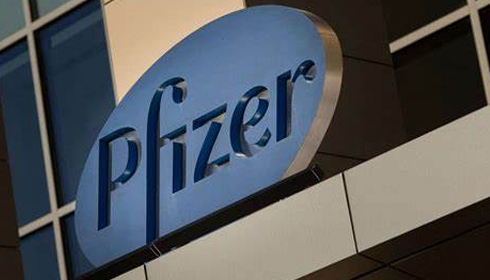
Pfizer plans to make eight blockbuster cancer drugs by 2030
Global pharmaceutical giant Pfizer recently held an event for investors where they announced a bold plan to have eight blockbuster cancer drugs by 2030. This plan shows how the company's oncology business is growing. A senior company official said this at the annual meeting of the American Society of Clinical Oncology (ASCO).
The four main types of cancer that Pfizer's oncology division works on are thoracic, genitourinary, blood, and breast cancer. Pfizer's own research suggests that more than eight of its drugs could achieve significant success. However, as the official explained, the company has now promised to only make eight drugs by 2030.
Last year, Pfizer bought antibody-drug conjugates (ADCs) pioneer Seagen for $43 billion. This shows how much the company has invested in oncology. Pfizer had to take multibillion-dollar steps to cut costs. Pfizer is taking these steps concurrently with the acquisition.
The official clarified that the savings would not impact the oncology department. We have completed the Seagen integration and restructured the business. In December, Pfizer established its own cancer division and named Dr. Chris Boshoff as its chief oncology officer.
Lung cancer is Pfizer's least important area right now. However, the official believes that lung cancer will play a key role as more people learn about it. At the ASCO meeting, Pfizer showed positive phase 3 data for Lorbrena, an ALK inhibitor. Lorbrena had a 60% five-year survival rate without disease progression in people with newly diagnosed advanced ALK-positive non-small cell lung cancer. Pfizer's previous drug, Xalkori, had an 8% survival rate.
Because it has neurotoxic side effects, Lorbrena has not been able to pass Roche's Alecensa, even though it has excellent results. But the official is still hopeful. He says that Lorbrena's patients live longer, which proves that she needs more therapy management.
With the purchase of Seagen's ADC portfolio, Pfizer has increased its ability to sell biologics. The official discussed the potential of Padcev, a bladder cancer drug that has demonstrated excellent first-line results when paired with Merck's Keytruda. Pfizer says that Padcev's highest sales will be more than $3 billion.
Two groups now make up Pfizer's genitourinary cancer team: one focuses on prostate cancer and the well-known drug Xtandi, while the other group focuses on kidney and bladder cancers. The official says that by 2030, the genitourinary business will do better than the breast cancer portfolio, even though the US patent for Xtandi will expire in 2027.
To sum up, Pfizer is putting a lot of money into its cancer division to make it more diverse and to find big new things. With smart acquisitions and a strong pipeline, the company should be able to have eight successful cancer drugs by 2030.